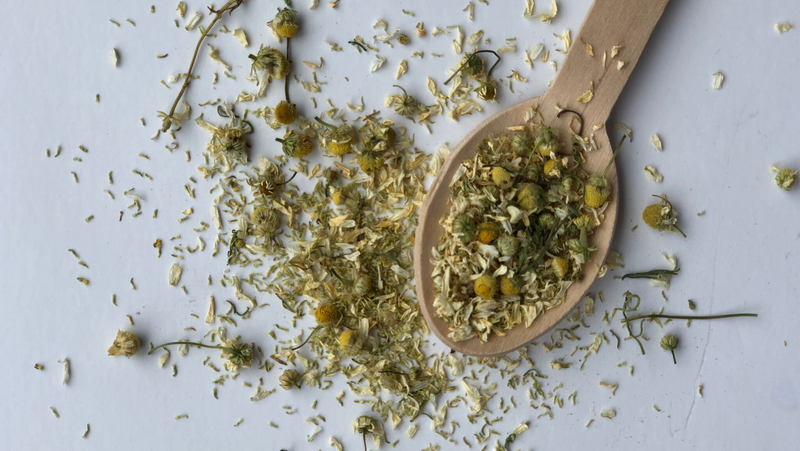Let’s talk about chamomile.
Just hearing the name relays a sense of calm, soothing relaxation - right?
Often associated with a night time cup of tea, this well known herb has many additional benefits, especially for skin, and can be found in Motherlove’s Pregnant Belly Oil and Pregnant Belly Salve.
The name chamomile is derived from ‘chamai’, meaning apple or melon, similar to the scent of the flower. The full name, Matricaria, means ‘mother’ which speaks to the benefits of this plant for females- and as you can imagine, our team here loves that!
When growing this flower, look for sunny environments - chamomile enjoys bright fields with dry soil, and flourishes in the wild. As a low-growing plant, the flowers reach heights of only one foot and are covered in leaves with hairy stems, giving the plant a feather-like appearance. The flowers bloom towards the end of summer, bringing a bright harvest.
The medicinal use of chamomile dates back to ancient Egypt where it was first used to treat fevers. Egyptians also used the flower as an embalming oil to reserve Pharaohs. Historically, chamomile was used to treat pain, nausea, and inflammation by the Romans and Greeks, as well.
The petals of chamomile have a pleasant scent, and were often used for their aromatic properties in the Medieval era. In some gardens throughout England, the flowers would be grown near pathways so the fruity scent of the petals would be released when being stepped on. Chamomile then came to the United States by colonists who planted the seeds and introduced it here.
When using chamomile on your skin, it can have many powerful benefits. With strong anti-inflammatory properties, chamomile is great for sensitive skin. It can help restore the skin’s natural moisture content, while promoting a healthy glow. We infuse chamomile in our Pregnant Belly Oil and Pregnant Belly Salve to help with the itch of growing skin, which is very common, especially in your last trimester of pregnancy. We hope you love chamomile as much as we do!



